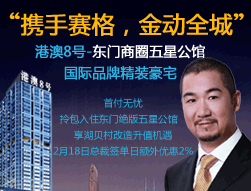www.wst898.com exposes various tactics used to pressure home buyers into purchasing houses
China's November CPI will reach about 5% year-on-year
The latest report published by UBS has forecasted that China's November CPI will reach about 5% year-on-year, but it will slightly fall in December; there will be another interest rate increase within this year and two to three more next year.
The report said that in order to control inflation expectations and prevent food price increases from expanding to the entire economy, interest rate hikes and liquidity management can and should play a key role. It is expected that the People's Bank of China will increase hedging operation intensity and appropriately lower the credit growth target for next year, with new loans amounting to RMB 6.5-7 trillion yuan.
CPI hits record high as inflation pressure mounts; are white collars no longer the main force in home buying?
On October 19th, the central bank announced an interest rate hike, which was also the first rate hike after 34 months, increasing the one-year loan benchmark interest rate by 0.25 percentage points, from the current 5.31% to 5.56%; the following day, the personal housing provident fund loan interest rate was also raised accordingly, with rates for terms of five years or less (including five years) increased by 0.17%, and those over five years increased by 0.18%. The pressure on the white-collar class, who form the main force among mortgage slaves, suddenly increased.
Home buying becomes universally recognized as the top investment channel
In 2009, to stimulate economic growth, our country implemented an extremely loose monetary policy. Under the crisis, the excessive issuance of large amounts of currency initially sought refuge assets, and real estate, supported by local government policies, was undoubtedly one of the most ideal investment products. Clearly, this was the initial cause of rising house prices.
As an asset, once real estate enters an upward channel, its price has strong inertia. The hidden concerns of inflation caused by large amounts of base money entering the circulation field have made residents feel that their money is becoming increasingly "worthless", so purchasing property has become a kind of "forced" investment channel. When the willingness of residents to hold currency significantly decreases, assets represented by real estate become scarce resources, and increasing supply by the government can only be "a drop in the bucket."
Buying houses to preserve value against inflation is widely recognized; stable housing prices can be expected next year
Qin Hong, deputy director of the Policy Research Center of the Ministry of Housing and Urban-Rural Development, stated that under the backdrop of inflation, the nominal price of real estate is unlikely to fall dramatically. Dong Fan, director of Beijing Normal University's Real Estate Research Center, said that houses are naturally investment products. In response to audience questions on whether houses can resist inflation, Gong Fangxiong, managing director and head of Investment Banking at J.P. Morgan China, clearly stated that theoretically and practically, houses indeed can resist inflation and at least keep pace with inflation, as has been verified in both developed and developing countries. Gu Yunchang, vice president and secretary-general of the China Real Estate and Housing Research Association, also said that currently, China lacks investment channels, and rich people have too much money without investment outlets, and the best method remains investing in property purchases. However, Qin Hong said that macro-control will not ease its blow on investment demand in the real estate market.
Investing in real estate is still regarded as the best way to combat inflation
The preferential interest rate for first-home mortgages has been adjusted to 8.5%, third-home loans have been completely halted, and differentiated provident fund mortgages...the financial policies of the real estate market regulation are getting tighter and tighter. The policy clearly hopes to control housing demand through the adjustment of financial leverage. However, in many first-tier cities, transaction volumes remain high even under regulation, and the phenomenon of full payment purchases has significantly increased. The main purpose of these full payment buyers is to preserve value.
The rise in CPI has increased inflation expectations. Under such a backdrop, people are more optimistic about the returns on real estate investments. This obviously goes against the original intention of real estate regulation policies to stabilize market expectations. Beijing Centaline Property believes that due to concerns about rapid price increases, the proportion of current homebuyers, especially those with certain funds, entering the market remains relatively high. Such powerful purchasing power places the regulatory policies in an awkward position.
Price chasing or policy tightening? Rigid demand and first-time improvement customers are "forced" to act early
Policy impacts have led to significant inventory digestion pressures in Nanjing's real estate market, which has been quiet for nearly a year. Faced with constantly flowing-in rigid demands, many developers are seizing the opportunity to either release new properties or accept pre-sales. But unlike previous grand opening ceremonies, "internal pre-sales" conducted quietly in advance have become the preferred opening method for developers now.
